
Garden Hazards: Common Plants Poisonous to Cats
Share
Ensuring the safety and well-being of our feline companion comes first. Our responsibility as pet owners is to keep them from harm. Knowing which plants are toxic for our furry friends is one of the things that we often overlook as fur parents. Some plants in our garden can be dangerous for cats if eaten, causing serious health problems.
Protecting Feline Health
Cats are naturally curious creatures who love to explore indoor and outdoor plants, munching on leaves and petals. Some plants can be harmful to cats, causing stomach issues, organ damage, and even death. Keeping toxic plants away from pets is important. Learn about plants that are harmful to cats to keep them safe from accidentally eating them and protect our feline friends.
Recognizing Toxic Plants
It's hard to know which plants are bad for cats because there are many types with varying levels of danger. Some common plants, both indoors and outdoors, can be harmful to cats if eaten. Examples include lilies, philodendrons, poinsettias, lily of the valley, azaleas, and oleander.
It's important to know which plants are toxic to cats. Keeping them away from your home and garden can prevent accidental poisoning. Some common flowers and plants that are harmful to cats are ones you may see every day.
Araneae Arums
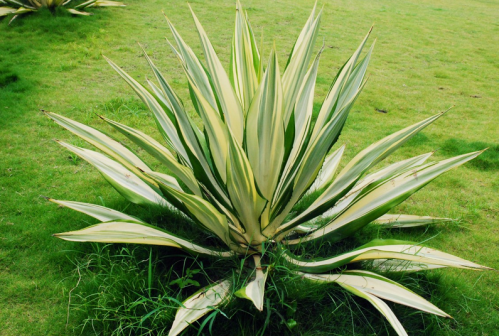
These plants contain an insoluble substance called calcium oxalate. This substance can cause cats' mouths to hurt, make them drool, and have difficulty breathing.
It can even block their airways. In humans, it can lead to kidney problems and symptoms in the nervous system. It can also lead to kidney problems and nervous system symptoms in humans.
Dracaena trifasciata
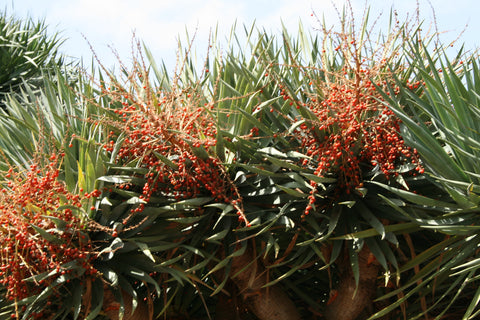
Another very popular plant, but still toxic to cats. Eating it will cause vomiting, depression, anorexia, excessive salivation, dilated pupils and other symptoms.
Aloe vera
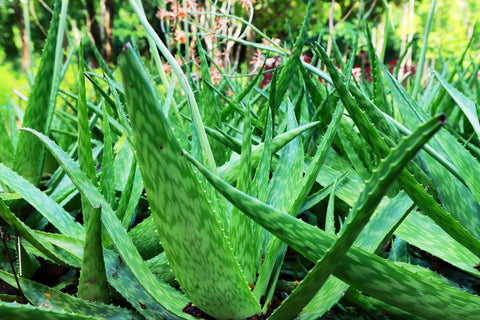
A very common plant in the early years, many pet parents used to put on the face or eat, but many of these species are very unfriendly to cats, the saponin, aloin, and quinones in the juice can cause vomiting, drowsiness, abdominal dirt.
Ivy Duckweed Common ivy Schefflera macrostachya
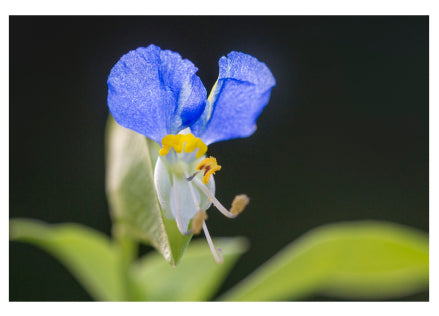
Sadly, the Araliaceae family includes popular plants like ivy and gooseberry. Certain substances in these plants, like snake venom glycosides and calcium oxalate, can make cats sick. They may experience vomiting, stomach pain, drooling, and other symptoms like stains on their belly and issues with their nervous system.
Hemerocallis Cycas
All parts of the plant are very poisonous, especially the seeds. They can make cats vomit and have diarrhoea quickly. Cats may also have trouble walking, become drowsy, have seizures, and eventually have liver damage that can be deadly.
Additionally, several species of diversified and gorgeous succulents, such as the genuses Lithospermum, Eternalis, and Dodecaphyllum, are more cat-friendly. However, even if they are not dangerous to cats, you cannot simply let them nibble on them! Some cats, in particular, enjoy the texture of succulents; nevertheless, eating too much can cause stomach and bowel irritation and must be avoided.
Flowers & All lilies
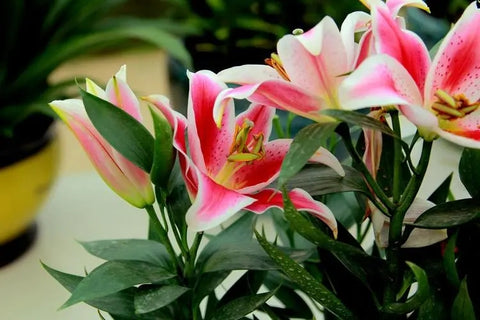
All lilies, red or white, are extremely harmful to cats. Cats can get sick quickly from all parts of the lily plant, like the pollen and water in the vase. They may vomit, feel sad, tired, not want to eat, and even have kidney problems. It is suggested not to grow or buy, and daily access to cats should be absolutely forbidden.
Cats dislike almost all bulbs and flowers, including tulips, daffodils, hyacinths, and lily of the valley. Even though they appear nice and are well-kept, try not to bring these flowers home as they can induce vomiting, allergies, palpitations, and even death in cats. These flowers usually open in the winter and spring.
Daisies, chamomile, etc.
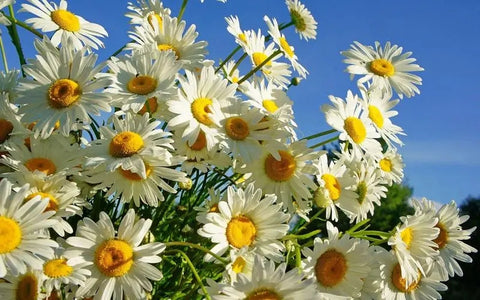
Along with being a common plant in flower markets, daisies are harmful to cats. Cats may nibble or touch daisies containing sesquiterpenes, lactones, pyrethrins, and other ingredients, which can result in allergic dermatitis, vomiting, abdominal stains, ataxia, and other symptoms. Cats may also experience similar clinical symptoms from camomile, which is rich in volatile oil ingredients like methanesulfonamide, floral acid, and tannic acid.
Dahlia
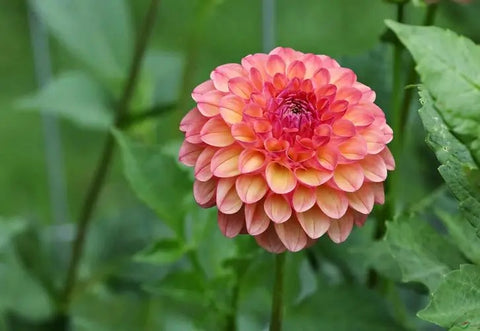
It is also harmful to cats, which makes it a newcomer to the cut flower market. Touching or eating lilies can cause skin irritation and stomach issues, although they are not as toxic as calla lilies.
Carnation
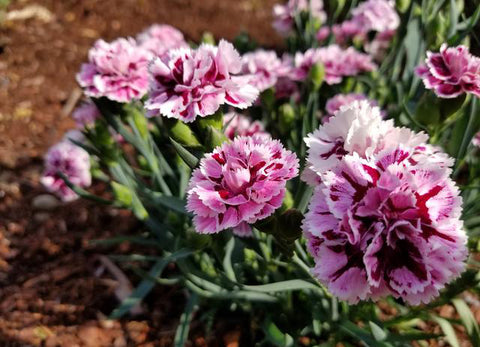
Arguably the most popular daily flowers TOP3, but they're not cat-friendly either. If you want to bring them home, you must store them somewhere that keeps cats out of reach because accidental intake can cause vomiting, diarrhoea, and other gastrointestinal issues.
Lavender
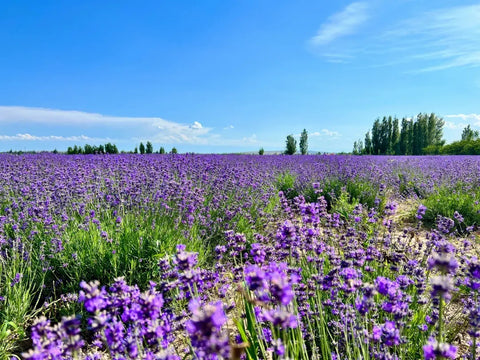
Lavender is a common dried flower and herb around us, but because of its high phenol content, linalyl acetate, and other chemicals, it is not cat-friendly. In fact, most plant essential oils should be kept away from cats on a regular basis.
Hydrangea
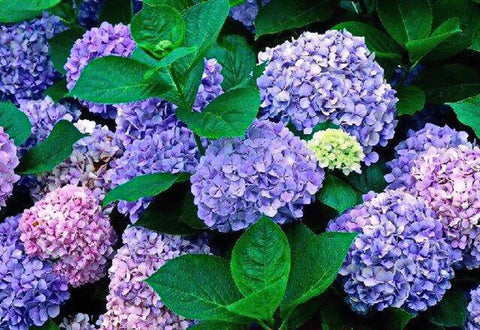
Now is the season of hydrangea in full bloom, itself is also considered a representative of the eye-catching face of cut flowers, but still the whole plant is toxic to cats, can lead to abdominal pain, abdominal dirt, blood in the stool, vomiting, shortness of breath, etc., although fresh and beautiful, but just look! In addition you can choose high imitation flowers, a lot of quality can be done to the extent of fake!
Symptoms of plant poisoning in cats
It's important to identify the signs of plant poisoning in cats in order to take immediate action and protect their health. Here, we'll highlight typical signs of poisoning that include vomiting, diarrhoea, fatigue, and trouble breathing.
Vomiting and Diarrhoea
Vomiting and diarrhoea are two of the most common signs of plant poisoning in cats. When a cat eats a hazardous plant, their body could try to get rid of the dangerous substances by throwing up or having diarrhoea. Frequent vomiting or diarrhoea may be a sign of poisoning and should be treated by a veterinarian right away, especially if it is accompanied by other symptoms.
Lethargy
Another common sign of plant poisoning in cats is lethargy, which can also refer to unusual tiredness or lack of energy. Plant-based toxins may affect a cat's metabolism and organ systems, resulting in tiredness and weakness. Cats could seem abnormally sleepy or unwilling to participate in their typical activities. A veterinarian should be consulted if lasting lethargic behaviour persists.
Difficulty Breathing
Cats suffering from severe plant poisoning may have trouble breathing or have respiratory distress. This can happen if the respiratory system is impacted by harmful substances in plants, which can cause inflammation or constriction of the airways. Cats may breathe quickly or laboriously, open-mouth breathing, coughing, or wheezing. Breathing problems are a medical emergency and need to be treated by a veterinarian right now.
Other Symptoms
Cats poisoned by plants may have symptoms like vomiting, diarrhoea, tiredness, and trouble breathing, in addition to other signs. Signs of poisoning can include drooling, biting lips, dilated pupils, shaking, seizures, irregular heartbeat, passing out, or coma. It's important to keep an eye out for any odd behaviours or signs that your cat is in trouble, and to seek veterinary help if you suspect poisoning.
Immediate Action
If a cat shows symptoms of plant poisoning, it's important to act quickly and seek veterinary care immediately. Making an immediately available appointment with an emergency animal clinic or veterinarian can help choose the best course of action and, if needed, deliver life-saving care. In some cases, the affected cat's prognosis may be significantly altered by early intervention.
In summary, it is important to recognise the signs of plant poisoning in cats, which include vomiting, diarrhoea, lethargy, and breathing difficulties, in order to protect their health. In the event that a pet shows any symptoms of discomfort, owners should seek immediate veterinary attention. By acting quickly and responsibly, we can help protect our feline companions from the dangers of toxic plants and provide them with the care they need to recover.
Seeking Veterinary Care
Despite our best efforts, accidents can still happen, and it's essential to know what to do in case of plant ingestion. It's important to seek emergency veterinary care if we believe that our cat may have consumed a toxic plant or if they are exhibiting signs of poisoning, such as vomiting, diarrhoea, lethargy, or trouble breathing. Early care can help reduce the severity of the poisoning and improve our cats' chances of recovering.
For more pet care tips please follow us on facebook and instagram

